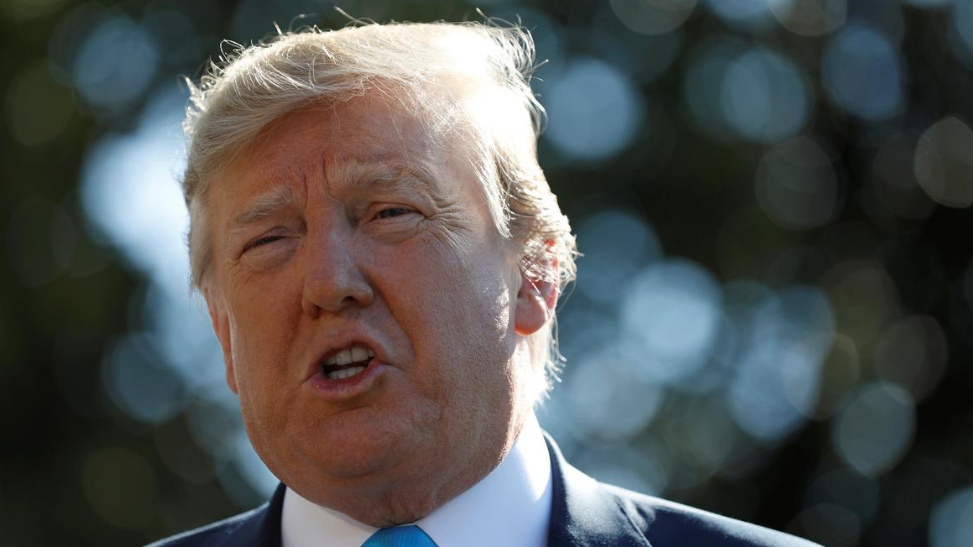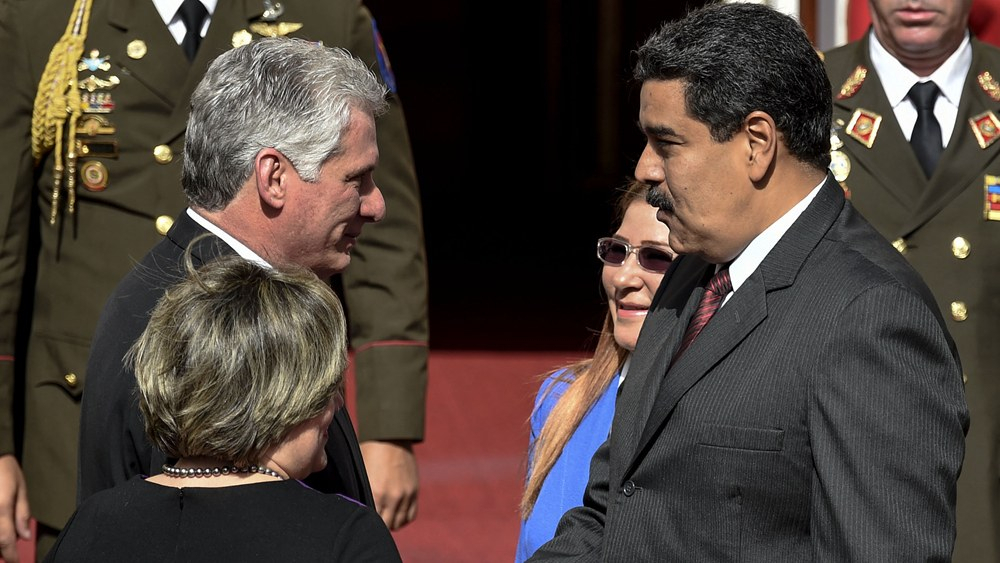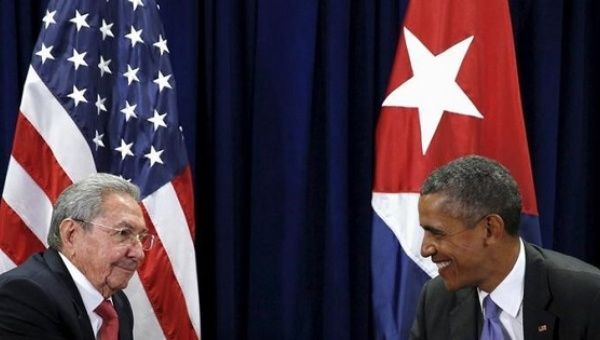
Latin America
10:14, 17-Apr-2019
In major shift, Trump to allow lawsuits against foreign firms in Cuba
CGTN

The Trump administration will allow lawsuits in U.S. courts for the first time against foreign companies that use properties Cuba confiscated since Fidel Castro's revolution six decades ago, a senior U.S. official said on Tuesday.
The major policy shift, which will be announced on Wednesday, could expose U.S., European and Canadian companies to legal action and deal a blow to Cuba's efforts to attract more foreign investment. It is also another sign of Washington's efforts to punish Havana over its support for Venezuela's President Nicolas Maduro.
Donald Trump's national security adviser John Bolton on Wednesday will explain the administration's decision in a speech in Miami and will also announce new sanctions on Cuba, Venezuela and Nicaragua, the official said, speaking on condition of anonymity.

Venezuelan President Nicolas Maduro (R) and his wife Cilia Flores (2-R) greet Cuban President Miguel Diaz-Canel and his wife Lis Cuesta, during a ceremony at the Miraflores presidential palace in Caracas, May 30, 2018. /VCG Photo
Venezuelan President Nicolas Maduro (R) and his wife Cilia Flores (2-R) greet Cuban President Miguel Diaz-Canel and his wife Lis Cuesta, during a ceremony at the Miraflores presidential palace in Caracas, May 30, 2018. /VCG Photo
It is unclear, however, whether such property claims will be acceptable in U.S. courts. The European Union has already warned it could lodge a challenge with the World Trade Organization.
Trump threatened in January to allow a controversial law that has been suspended since its creation in 1996, permitting Cuban Americans and other U.S. citizens to sue foreign companies doing business in Cuba over property seized in decades past by the Cuban government.
Title III of the Helms-Burton Act had been fully waived by every president over the past 23 years due to opposition from the international community and fears it could create chaos in the U.S. court system with a flood of lawsuits.

Then U.S. president Barack Obama (R) and then Cuban president Raul Castro meet at the United Nations General Assembly in New York, September 29, 2015. /Reuters Photo
Then U.S. president Barack Obama (R) and then Cuban president Raul Castro meet at the United Nations General Assembly in New York, September 29, 2015. /Reuters Photo
The complete lifting of the ban could allow billions of dollars in legal claims to move forward in U.S. courts and likely antagonize Canada and Europe, whose companies have significant business holdings in Cuba.
It could also affect some U.S. companies that began investing in the island, an old Cold War foe, since former president Barack Obama began a process of normalizing relations between the two countries from the end of 2014.
U.S.-Cuban relations have nosedived since Trump became president, partially rolling back the detente initiated by Obama and reverting to Cold War rhetoric. A six-decade U.S. economic embargo on Cuba has also remained officially intact.
The Cuban government did not immediately respond to a request for comment. But the country's National Assembly, meeting over the weekend, declared the Helms-Burton Act "illegitimate, unenforceable and without legal effect."
The European Union, the island's biggest trading partner, slapped the decision.
"This will create even more confusion for foreign investments that are helping create jobs and prosperity in Cuba," EU envoy to Havana Alberto Navarro told reporters on Tuesday.
(With input from Reuters)

SITEMAP
Copyright © 2018 CGTN. Beijing ICP prepared NO.16065310-3
Copyright © 2018 CGTN. Beijing ICP prepared NO.16065310-3